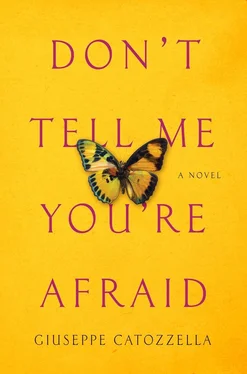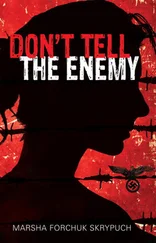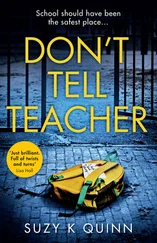Giuseppe Catozzella
Don't Tell Me You're Afraid

THE MORNING THAT Alì and I became brother and sister was hot as blazes, and we were huddled under the skimpy shade of an acacia.
It was Friday, a holiday.
The run had been long and tiring, and we were both dripping with sweat: from Bondere, where we lived, we’d come straight to the CONS (Somali National Olympics Committee) stadium in Mogadishu without once stopping. Seven kilometers, making our way through all the side streets, which Alì knew like the back of his hand, under a sun scorching enough to melt stone.
Our combined age was sixteen: We were both eight years old, born three days apart. We couldn’t help but be brother and sister, Alì was right, even if we were from two families who weren’t even supposed to talk to each other yet lived in the same house, two families who had always shared everything.
We were under that acacia to catch our breaths a little and cool down, covered up to our behinds with the powdery white dust that swirls up from the roadbeds at the slightest puff of wind, when all of a sudden Alì came out with that bit about being his abaayo .
“Wanna be my abaayo ?” he asked me, his breath still ragged, hands on his bony, narrow hips in the blue shorts that had been worn by all his brothers before ending up on him. “Wanna be my sister?” You know someone all your life, yet there is always one exact moment from which point on, if he is important to you, he will always be a brother or sister.
Bonded for life by a word, you remain that way.
I looked at him sideways, not letting him know what I was thinking.
“Only if you can catch me,” I said abruptly, before taking off again, back toward our house.
Alì must have given it everything he had, because after a few strides he managed to grab me by my T-shirt and make me stumble. We ended up on the ground, him on top of me, in the dust that clung everywhere, to the sweat on our skin and to our thin clothing.
It was almost lunchtime. There was no one around. I didn’t try to squirm free, didn’t put up any resistance. It was a game.
“Well?” he asked, his breath hot on my face as he suddenly became serious.
I didn’t even look at him, just squeezed my eyes shut, disgusted. “You have to give me a kiss if you want to be my brother. Those are the rules, you know.”
Alì stretched out like a lizard and pressed a big wet kiss on my cheek.
“ Abaayo, ” he said. Sister.
“ Aboowe, ” I replied. Brother.
We got up and took off again.
We were free, free to run again.
At least as far as the house.
Our house wasn’t even a house in the normal sense of the word, not like those nice ones with all the comforts. It was small, very small. And two families lived in it, mine and Alì’s, around the same courtyard enclosed by a low earthen wall. Our dwellings faced each other from opposite sides of the yard.
We were on the right and had two rooms, one for me and my six brothers and sisters and the other for our mother and father. The walls were a mixture of mud and twigs, which hardened in the sun. Between our two rooms, as if to separate us from our parents, was the room belonging to the landlords: Omar Sheikh, a big fat man, and a wife even fatter than him. They had no children. They lived near the coast, but every so often they came to spend the night there, and when that happened the days immediately became much less pleasurable. “Save your jokes and funny stories for the day after tomorrow,” my oldest brother, Said, would say whenever he saw them coming, referring to when they would leave again.
Alì, however, with his father and three brothers, lived in only one room, alongside the wall to the left.
The best part of the house was the courtyard: a huge enclosure, I mean really huge, with an enormous, solitary eucalyptus. The yard was so big that all of our friends wanted to come to our place to play. The ground, like the floor inside the house and everywhere else, was the usual fine white dust that in Mogadishu ends up all over the place. In our bedroom, for example, we’d laid straw mats under the mattresses, but they didn’t help much: Every two weeks Said and Abdi, my older brothers, had to take them outside and beat them as hard as they could, trying to get rid of every single grain of sand.
The house had been built by the fat man, Omar Sheikh, himself many years earlier. He’d wanted it put up right around the majestic eucalyptus. Having passed by it every day since he was a child, he’d come to love that tree, or so he told us countless times in that ridiculous little voice of his, which came out breathless. At that time the eucalyptus was already tall and sturdy, and he had thought: I want my house to be here. Then, under the dictator Siad Barre’s regime, business problems had arisen and it seemed that war was coming, so he’d decided to move to a more peaceful location and had rented the three rooms to our two families, mine and Alì’s.
At the back of the yard was the shed that served as the communal toilet: a tiny cubicle enclosed by dense bamboo canes, with a nauseating central hole where we did our business.
On the left, just before the latrine, was Alì’s room. On the right, facing it, was ours: four by four meters, with seven mattresses on the floor.
Our brothers slept in the center and we four girls slept beside the walls: Ubah and Hamdi on the left and Hodan, my favorite sister, and I on the right. In the midst of us all, like an unfailing, protective hearth, stood the inevitable ferus, the kerosene lamp without which Hodan would never have been able to read and write her songs late into the night, and Shafici, the youngest of the boys, would not have been able to perform his hand-shadow plays on the wall; the figures were so clumsy and ungainly that they made us die laughing. “You create great entertainment out of shadows and a lot of imagination,” Said told him.
All in all, the seven of us tucked into that little room had loads of fun before going to sleep each night, trying not to let our mother and father hear us, or Yassin, Alì’s father, who slept across the way from us with Alì and his three brothers. A few steps away from me. Alì and I had been born three days apart and were separated by just a very few steps.
Since we’d come into the world, Alì and I had shared food and the outhouse every day. And of course dreams and hopes, which come with eating and shitting, as aabe, my father, always said.
Nothing ever separated us. Alì for me was always like a boy version of Hodan, and Hodan a graceful Alì. We three were always together, just the three of us; our world was complete; there was nothing that could separate us, even though Alì is a Darod and I’m an Abgal, the clans that have been at war since eight weeks before we were born, in March 1991.
Our mothers gave birth to us, the lastborn, while the clans gave birth to war: our “big sister,” as my mother and father always said. An evil sister, yet someone who knows you perfectly, who knows very well how easy it is to make you happy or sad.
Living in the same house, as Alì and I did, was forbidden. We were supposed to hate each other, the way the other Abgal and Darod hated each other. But no. Instead we always did things our own way, including eating and shitting.
The morning that Alì and I became brother and sister we were training for the annual race through the districts of Mogadishu. It was two weeks away, and to me that seemed like an eternity. Race day was the most important day of the year for me. Friday was a holiday and there was also a curfew in effect, so you could go around freely and run through the streets of the city, surrounded by all that whiteness.
Читать дальше





![Ally Carter - [Gallagher Girls 01] I'd Tell You I Love You But Then I'd Have to Kill You](/books/262179/ally-carter-gallagher-girls-01-i-d-tell-you-i-lo-thumb.webp)







